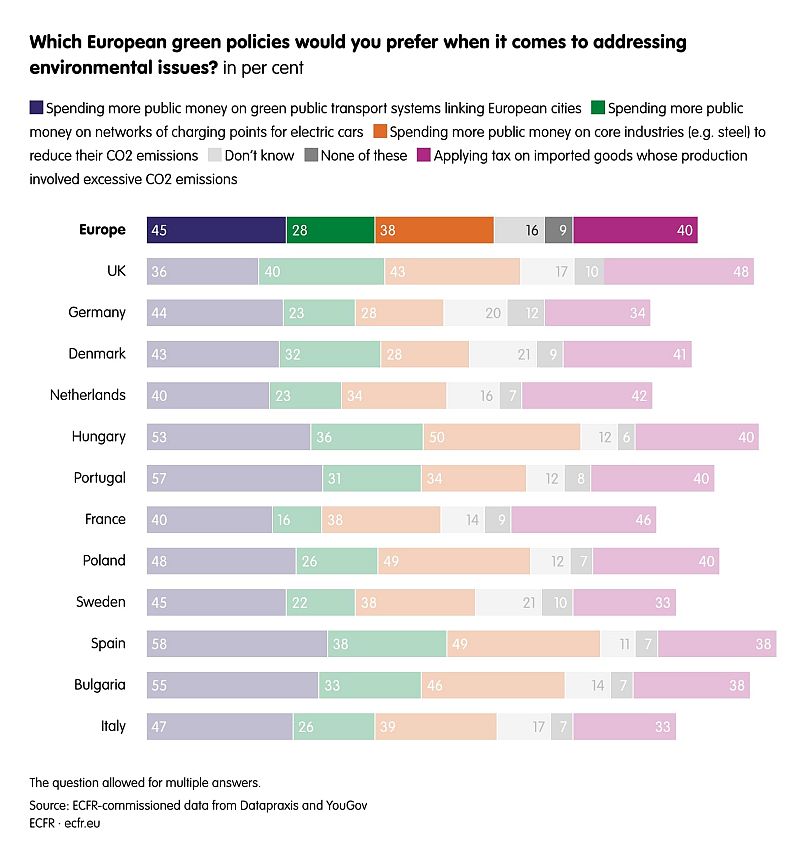European nations will not be credible to others if they cannot agree at home, and third countries will instead bank on the proposals being watered down.
Last week two big pieces of climate news rocked Europe. Germany and Belgium, as well as France and the Netherlands, experienced devastating floods. At the same time, the European Commission launched its “Fit for 55” set of legislative proposals on how to achieve the target of cutting greenhouse gas emissions by 55% by 2030.
 ADVERTISEMENT
ADVERTISEMENT
 ADVERTISEMENT
ADVERTISEMENT
The former underlined the reality and the urgency of the climate crisis we are facing. The latter showed that though European leadership agrees on this urgency, we are still deeply divided on how to share the cost of the transition away from carbon.
The fireworks that exploded in the commissioners’ meeting in the Berlaymont building ahead of the launch of the package on July 14 highlighted that getting agreement in the coming months between national governments in the EU Council, and between political families in the European Parliament is going to be tricky.
The commission proposes to expand the existing emissions trading scheme to cover road transport and households as well. Ultimately this will mean that households see their costs rise significantly through the coming decades as well as businesses. It was the fear of the social unrest that this is likely to trigger in many member states that led to the tense debate when Commission President von der Leyen laid out the proposals with her colleagues.
Climate Social Fund
Though it may be essential that the cost of climate action is shared across European societies and economies, it is also clear that fairness must be at the centre of the EU’s response. In ‘Europe’s Green Moment: How to address the climate challenge’ ECFR’s researchers found that in 19 out of 27 member states, mitigating the socio-economic consequences tops of the list of perceived challenges in implementing the European Green Deal.
ECFR-commissioned polling across 12 EU member states in November 2020 indicated that the most popular policies under the Green Deal will be those that invest in public goods – the most popular policy was spending more money on green transport systems linking European cities. Narrative around the “Fit for 55” package will be key here, and the Climate Social Fund must shine through in the public messaging around the Green Deal package.
The external dimension of the Green Deal also reveals unresolved tensions about what kind of climate leadership the EU wants to portray. EU officials have made clear that the EU’s ambition to become the world’s first climate-neutral continent is in part about pushing others to go further and faster too.
Yet the Carbon Border Adjustment Mechanism (CBAM) was less ambitious than climate action campaigners hoped for in terms of its sectoral coverage – in its initial phase from 2026 covering aluminium, cement, electricity, fertilisers, and iron and steel – likely in part because of concerns being raised by competitors including China and the US about WTO compatibility.
Given that one of the explicit aims of the CBAM is incentivise companies outside the EU to limit carbon use in their production to retain ease of trade with European markets, the G20 endorsement of carbon pricing earlier in July offered momentum for the EU to put forward a broader proposal.
In the first six months of Joe Biden’s US presidency, it is becoming clear that US climate leadership will be diplomatic leadership. To complement this, the EU should strive instead for ‘climate action leadership.’ Now that the legislative package is on the table, the EU must carefully manage the internal divisions highlighted above to show the world that the Green Deal is not just a plan but a fact.
Open dialogue
The EU now needs to open dialogue – starting with neighbouring countries, such as Turkey, North Africa, the Western Balkans, and Eastern Partnership countries – on a firm but supportive footing.
It must be clear that there is no plan B to the Green Deal but that the EU is willing to invest and support as an interested partner in building up their capacity to develop their renewables sectors, in moving towards zero carbon production.
The EU’s climate action leadership must not be compromised by months of division as the package of proposals work their way through the institutional approval process.
We will not be credible to others if we clearly cannot agree at home, and third countries will instead bank on the proposals being watered down.
Susi Dennison is a senior policy fellow and head of the European Power programme of the European Council on Foreign Relations.











